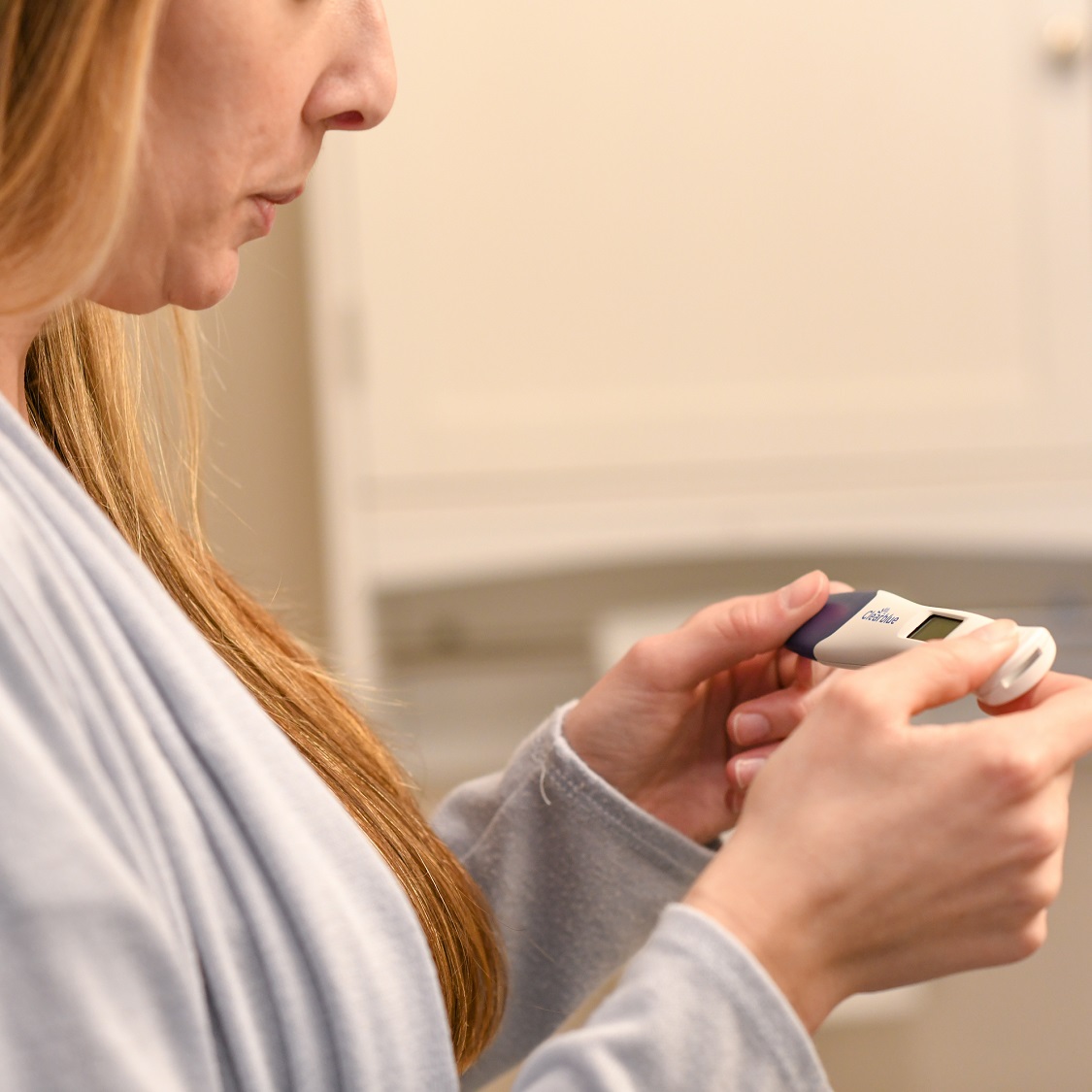How to Talk to Your Partner About STD Testing

September 30, 2022
Few topics are more nerve-wracking to discuss with a new partner than sexually transmitted diseases (STDs). However, talking about STDs early in a relationship can be a huge benefit to both individuals’ health.
Talking about STDs can happen at any time, whether it’s with your long-term partner, or a new hook-up.
The reason to bring up STDs? So that you and your partner can get tested before becoming sexually active. (For existing partners, testing after being sexually active is better than never.)
Why test for STDs?
Learning whether either of you has an STD may prevent the disease from spreading. As many STDs have silent symptoms, people may not know that they have them.
“It’s possible to have a STD for years without developing any signs or symptoms,” says Infectious disease expert, Nazar Raoof, M.D. “Partners may pass STDs to others unknowingly, without realizing that they have one.”
Sexually transmitted diseases include:
- Chlamydia
- Gonorrhea
- Syphilis
- Genital herpes
- Pubic lice (crabs)
- Human papillomavirus (HPV)
- HIV/AIDS
- Hepatitis
How to Start an STD-Related Conversation
When you talk about STDs, make the conversation about health – yours and your partner’s. Mention that many STDs are curable and can be treated with medication.
“Getting tested before becoming sexually active is a way to protect one another,” says Dr. Raoof. “For those in existing relationships, getting treated for possible STDs may prevent complications.”
Bring up the topic in a neutral, non-sexual moment. It’s okay to chuckle about how awkward the topic is, as long as you talk.
Suggest that you get tested together, or make plans to test separately. Agree to share your test results with one another before becoming intimate.
You may get tested for STDs at any number of locations, including:
- Your doctor’s office
- A Planned Parenthood location
- A health clinic
- An urgent care center
- A pharmacy-based health clinic
- A health clinic at your county’s department of health
If your partner gets defensive about testing, explain that you’re only thinking about health. You don’t need to know their dating history, and you don’t suspect infidelity.
“When someone objects or doesn’t want to get tested, that may be a red flag,” says Dr. Raoof. “Disclosing STD status should be about trust. Would you trust your well being to someone who wouldn’t grant you this health-related information?"
What if Someone Tests Positive
When you get tested, it’s possible that you or your partner may test positive. Even people who look and feel healthy may have an STD.
Testing positive isn't a cause to end a relationship or a sign that someone cheated. STDs may be present for years before they’re discovered.
“It’s important to let your partner know about your STD status, then seek treatment,” Dr. Raoof says. “You should also let exes know your results, so they can get tested, too.”
Many STDs are curable with a short course of medication. To prevent an STD from spreading, avoid sexual activity until you’ve completed treatment.
If your partner tests positive, try to be kind and compassionate, not judgmental. They were honest about their test results, and millions of Americans get STDs.
“Treat your partner with the respect that you’d want if you tested positive,” says Dr. Raoof. “Remember that STDs are a health issue, not a reason to criticize.”
Next Steps & Resources:
- Meet our source: Nazar Raoof, M.D. To make an appointment with Dr. Raoof, in Old Bridge, call 732-360-2700 or in Perth Amboy 732-324-5022. In Perth Amboy there is free HIV Testing and Counseling available.
- To make an appointment with a doctor near you, call 800-822-8905 or visit our website.
The material provided through HealthU is intended to be used as general information only and should not replace the advice of your physician. Always consult your physician for individual care.
Find a doctor near me

Questions You Shouldn’t Be Embarrassed To Ask Your OB/GYN
Talking about your private parts is something that you might want to keep, well, private. But let’s face it, ladies, sometimes we may have questions regarding our vaginal health.

7 Tips to Prepare for Your First Mammogram
Prepare for your first mammogram with Dr. Chuang's 7 tips. Learn how to ease anxiety and ensure a smooth experience at Mountainside Medical Center. Schedule now.
Find a doctor near me

Why am I Not Getting Pregnant When Everything is Normal?
If you and your partner know that each of your reproductive systems is healthy, here are some possible reasons why you haven’t been successful just yet.

5 Symptoms You Should Tell Your Gynecologist About
Don’t ignore these concerning symptoms you should tell your gynecologist about.

The Doctor Appointments Women Should Make Every Year
Women are known to visit doctors more often than men do. But what doctors should women see annually to best stay on top of their health?

Colonoscopy vs. At-home Screening: Which Is Right for You?
Colon cancer is one of the leading causes of cancer deaths in the United States. Here’s what you should know about screening options available.
